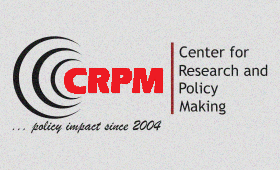

Victor Friedman received his B.A. in Russian Language and Literature from Reed College in 1970 and his Ph. D. in both Slavic Languages and Literatures and in General Linguistics from the University of Chicago in 1975. This was the first joint degree granted in the Division of the Humanities at Chicago, and his dissertation, “The Grammatical Categories of the Macedonian Indicative” won the Mark Perry Galler prize for the best dissertation in the Humanities Division that year. From 1975 to 1993 he taught in the Department of Slavic Languages at the University of North Carolina, Chapel Hill, where he chaired the Department from 1987 to 1993. In 1993 he moved to the University of Chicago, where he is Andrew W. Mellon Professor in the Humanities with a joint appointment in Linguistics and Slavic Languages and Literatures and an associate appointment in Anthropology. He has over 200 publications, and The Grammatical Categories of the Macedonian Indicative (Slavica, 1977) was the first book on Modern Macedonian published in the United States.
Friedman has done fieldwork in the Balkans for over thirty-five years and has received research grants from Fulbright-Hays, IREX, ACLS, NEH, APS, etc. In 1982 he received the “1300 Years of Bulgaria” jubilee medal for contributions to the field of Bulgarian studies. In 1991 and again in 2003, he was awarded the University of Skopje Gold Plaque for contributions to the field of Macedonian studies, and in 1994 he was elected to the Macedonian Academy of Arts and Sciences. In 1995 he was elected to Matica Srpska, and in 2004 he was elected to the Academy of Arts and Sciences of Kosova. During the Yugoslav Wars of Succession, he worked as a Senior Policy and Political Analyst for the Analysis and Assessment Unit of the United Nations Protection Forces stationed in former Yugoslavia (summer 1994), joined a fact finding mission for the South Balkan Project of the Center for Preventive Action of the Council on Foreign Relations (1995-1997), consulted for the International Crisis Group (1997), and did some work with the United States Institute for Peace (1999-2000). He has been a visiting scholar at Cornell (Balkan linguistics, LSA summer institute 1997), University of Skopje (Balkan Identity, 1999), Central European University-Budapest (Romani linguistics 1999, 2001, 2003), Kyoto University (Balkan linguistics, 1999), National University of Malaysia (Southeast Europe/Southeast Asia: Comparative Perspectives, 2000), University of Helsinki (Balkan linguistics, 2000), University of Prishtina (Balkan and Caucasian linguistics, 2002), and LaTrobe University (Research Center for Linguistic Typology, Balkan linguistics, 2004).
Friedman’s research centers on grammatical categories (particularly the verb), language contact, and sociolinguistics (especially problems of variation and standardization) in the Balkans and the Caucasus. Owing to the intimate connections of language with politics and ethnic identity in these parts of the world, his work has of necessity been interdisciplinary. His publications deal with the following languages: Albanian, Aromanian (Vlah), Azeri, Bosnian/Croatian/Serbian (especially the Torlak dialects), Bulgarian, Georgian, Greek, Judezmo, Lak, Macedonian, Megleno-Romanian, Romani, Romanian, Russian, Tadjik, Turkish.
His recent books are the following:
Macedonian. (Languages of the World/Materials 117). Munich: LinCom Europa. 60 pp. 2002.
Turkish in Macedonia and Beyond: Studies in Contact, Typology, and Other Phenomena in the Balkans and the Caucasus. Wiesbaden: Harrassowitz. xvi+191 pp. 2003.
Studies on Albanian and Other Balkan Languages. Peja: Dukagjini. 546 pp. 2004.
For a full list of his publications, click here.
Work in progress: various articles and a book entitled The Balkan Languages (with Brian Joseph, to be published in the Cambridge University Press Green Series)
Some day, some day: Nasreddin Hodja: A multilingual, cross-cultural, transnational reader.

Leave a Reply